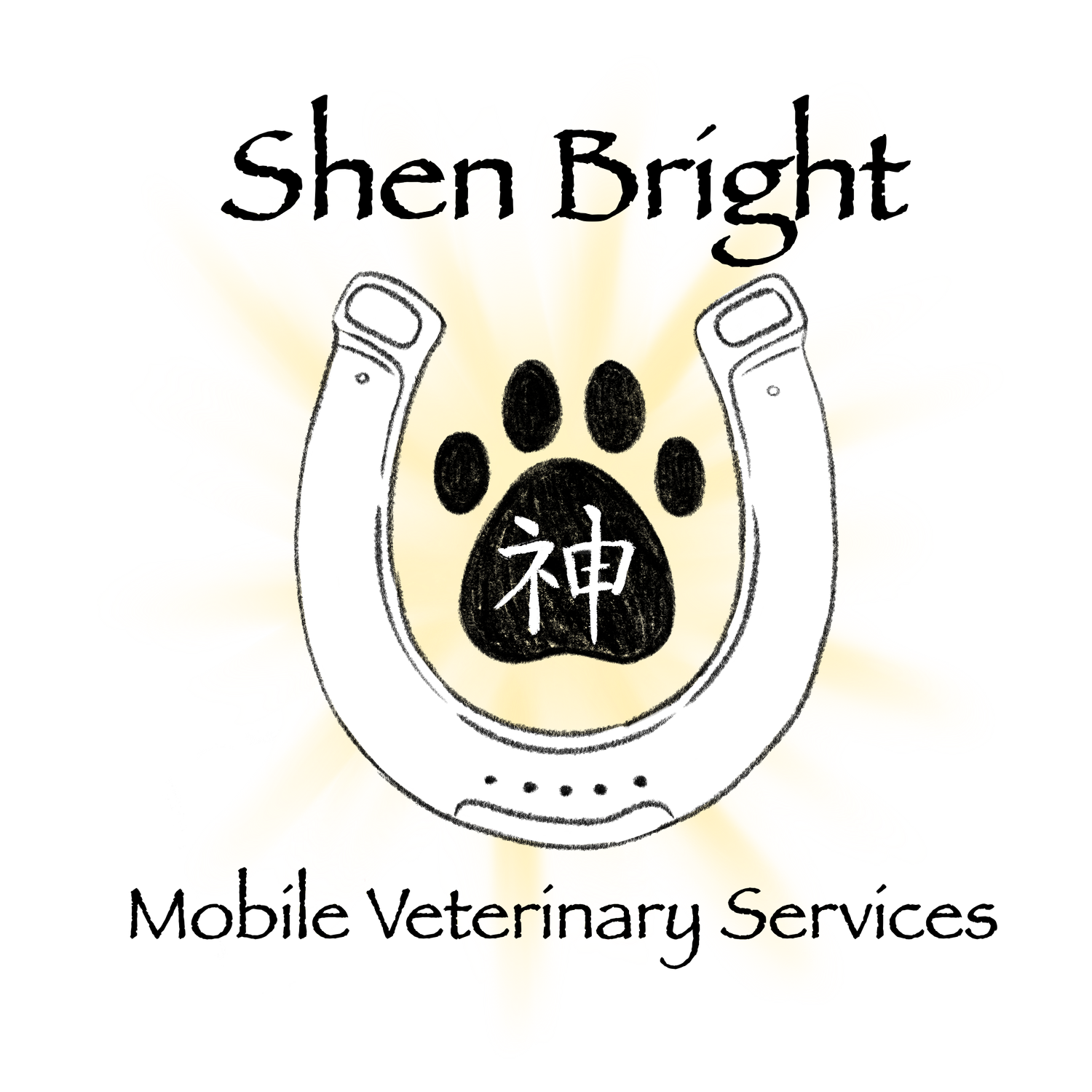Learn about our services
-
Pain management
Arthritis and joint issues
Neurological conditions
Digestive disorders
Respiratory conditions
Dermatologic conditions
Heart disease
Kidney disease
Liver disease
Behavioral issues
Seizures
Cancer
-
Therapeutic diet planning
Nutritional assessment
Whole food supplementation
-
Digestive support
Immune system enhancement
Kidney and liver support
Skin condition management
Anxiety and stress relief
Chronic pain management
-
Dr. Luke can work in combination with your veterinarian to implement Traditional Chinese Veterinary Medicine therapies with Western Medicine diagnostics and therapies. This gives your pet or horse the best of both worlds!
-
Small Animal appointment availability is based on location, please contact us to see if Dr. Luke services your area
Acupuncture
-Dry Needling
-Aquapuncture
-Electroacupuncture
Herbal Therapy
Food Therapy
-Evaluation and supplemental recommendations
-Nutritional assessment and Diet Formulation
*Contact us for pricing
-
Acupuncture
-Dry Needling
-Aquapuncture
-Electroacupuncture
Herbal Therapy
Food Therapy
-Evaluation and supplemental recommendations
*Contact us for pricing
FAQs
What is integrative medicine?
Integrative veterinary medicine combines conventional Western veterinary care with evidence-based complementary therapies like acupuncture, herbal medicine, and nutritional therapy. Rather than treating these as separate approaches, integrative medicine recognizes that different healing methods work better together to achieve optimal outcomes for your pet. Dr. Luke addresses not just symptoms, but underlying imbalances that contribute to health issues. This individualized approach is particularly valuable for chronic conditions, senior animals, and pets who haven't responded well to conventional treatments alone. The goal is to provide the most comprehensive care possible while maintaining the safety and diagnostic capabilities of modern veterinary medicine.
What is acupuncture?
Veterinary acupuncture involves placing very thin, sterile needles into specific points on your pet's body to stimulate healing, reduce pain, and restore balance. The science shows that acupuncture triggers the release of natural pain relievers, improves circulation, reduces inflammation, and enhances immune function. Most pets tolerate acupuncture very well, often becoming relaxed or sleepy during the 15-30 minute sessions. Acupuncture is particularly effective for chronic pain, arthritis, neurological conditions, digestive issues, and anxiety-related behaviors. While some pets show improvement after one session, most conditions require a series of treatments for optimal results. Dr. Luke typically recommends at least 3-6 sessions prior determining if acupuncture therapy should be continued.
Does acupuncture hurt?
Acupuncture needles are extremely thin—much thinner than injection needles—and most pets don't seem to feel them being inserted at all. Any initial sensation is typically very brief and mild, similar to a small pinch that quickly fades. Many animals actually become more relaxed during treatment, with some even falling asleep during sessions. The therapeutic benefits far outweigh any momentary discomfort, and most pets quickly learn to associate acupuncture appointments with feeling better.
What if my pet doesn't like needles?
Dr. Luke takes a gradual, patient approach with needle-sensitive pets, often starting with just a few needles and shorter sessions to build trust and comfort. Many anxious pets respond well to gentle restraint, treats, and a calm environment during treatment. For extremely needle-phobic animals, Dr. Luke may use alternative techniques like aquapuncture, herbal, and food therapy that provide similar benefits without traditional needles. The goal is always to keep your pet comfortable while still providing effective treatment.
What is aquapuncture?
Aquapuncture involves injecting small amounts of sterile solutions (such as saline or vitamin B12) into acupuncture points instead of using dry needles. This technique provides the benefits of acupuncture point stimulation while delivering additional therapeutic substances directly to the treatment area. Aquapuncture is particularly useful for pets who are needle-sensitive or for conditions that benefit from the longer-lasting stimulation that injected solutions provide. The injection uses a very small needle and is typically well-tolerated, even by anxious animals.
What is electroacupuncture?
Electroacupuncture involves attaching small electrical leads to acupuncture needles to provide gentle, controlled electrical stimulation to specific points. The electrical current is very mild and most pets don't feel it, though some may notice a slight tingling sensation. This technique is particularly effective for neurological conditions, chronic pain, and paralysis because the electrical stimulation of acupoints helps to provide quicker and longer lasting results. Dr. Luke carefully adjusts the frequency and intensity based on your pet's condition and comfort level.
What is Chinese herbal therapy?
Chinese herbal medicine is a 3,000-year-old healing system that uses carefully balanced formulas containing multiple herbs working together to address the root cause of illness. Unlike single herbs, these formulas are designed synergistically, with each herb playing a specific role to create treatments that are both more effective and gentler than individual components. Dr. Luke uses traditional diagnostic techniques to identify your pet's unique constitutional patterns and selects the most appropriate herbal formula for their individual needs. The herbs are sourced from reputable suppliers who provide veterinary-grade products tested for purity and safety. Chinese herbal medicine works gradually but profoundly, making it ideal for complex, chronic conditions while simultaneously supporting overall health and vitality.
What is food therapy?
Food therapy is based on the principle that food is medicine, using the energetic properties of different foods to promote healing and maintain health. Unlike conventional nutrition that focuses on calories and basic nutrients, food therapy considers how foods interact with your pet's individual constitution and health needs. Foods are classified as cooling, warming, or neutral, and are selected based on your pet's specific condition - for example, cooling foods for skin allergies or warming foods for digestive weakness. This approach considers not just what your pet eats, but how food is prepared, when it's served, and in what combinations for maximum therapeutic benefit. Food therapy is particularly effective for chronic conditions like allergies, digestive issues, and arthritis, while also supporting overall wellness in healthy animals.

